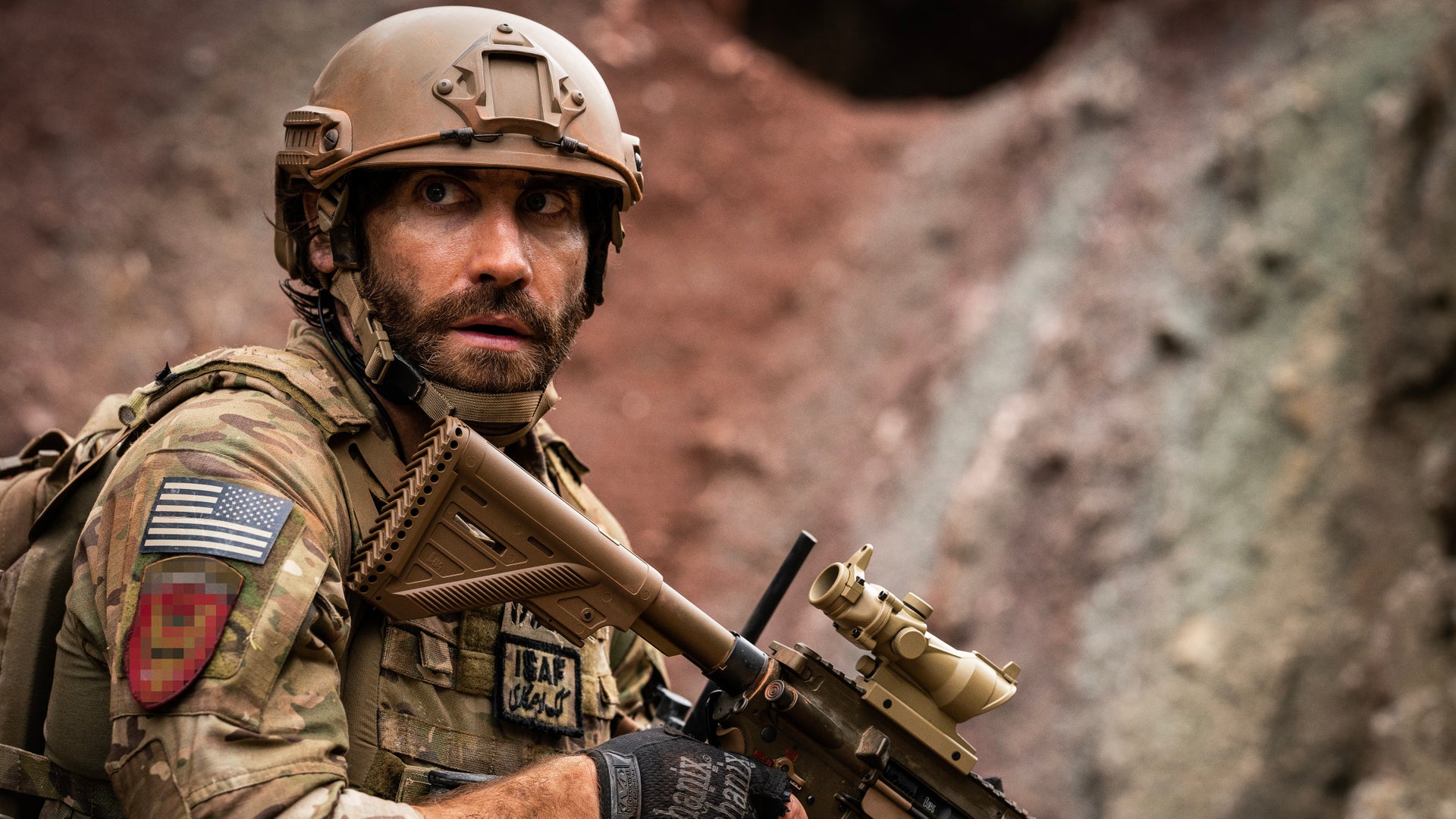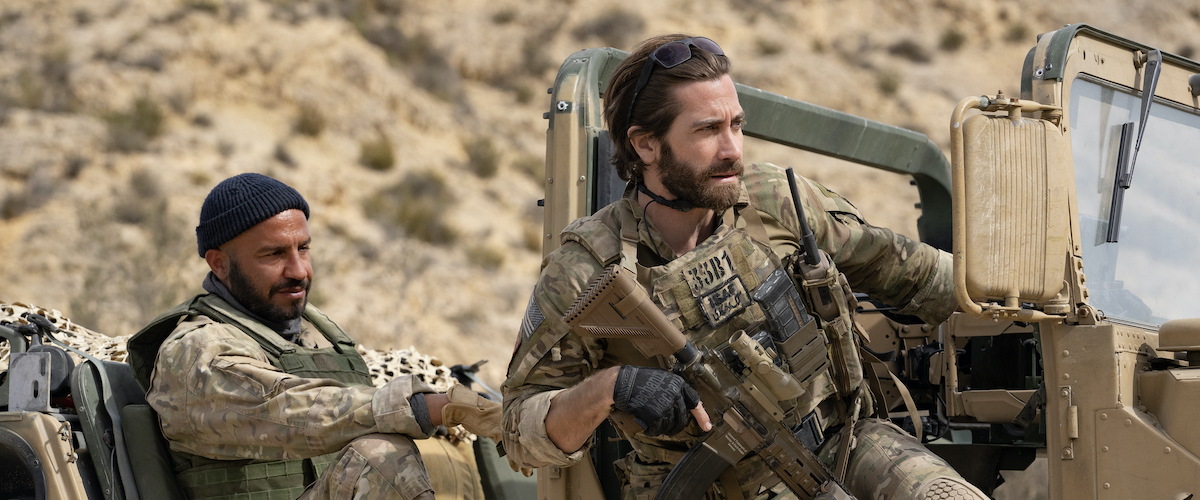Guy Ritchie’s The Covenant (or simply The Covenant) is a 2023 American action thriller film co-written, produced and directed by Guy Ritchie. The film stars Jake Gyllenhaal and Dar Salim. Its plot follows John Kinley, a U.S. military sergeant, and Ahmed, his Afghan interpreter, fighting the Taliban.
When I first saw the trailer for The Covenant I was hopeful that it would turn out as a good viewing experience. After seeing additional material I immediately knew that I wasn’t going to like this movie much. My hunch was correct. I got the feeling there was going to be an inconsistent story, and the director wouldn’t know how to handle the subject matter. Honestly, there is a lot of complex subject matter to tackle with regards to the War in Afghanistan. Was he going to make it a muscular action flick, as he’s known for or would he tackle how Biden screwed up the American pullout and the lives lost in Afghanistan? Quite a few movie critics enjoyed the film.
Here’s the thing, Jake Gyllenhaal always does a great job in films but he wasn’t used well here. Nor are the team-mates used well that we get introduced to, because they are all killed early on in the film. We never get a sense that Kinley loses something. There is no relationship built; we don’t get funny dialogue or profound shared pain. Even though we understand that he becomes injured we really don’t sympathize with him nor his mission to get back safe.
The movie unfolds as a contemplative, self-aware narrative centered around John Kinley (played by Jake Gyllenhaal), a rugged American Sergeant, and his observant Afghan translator, Ahmed (portrayed by Dar Salim). Their daily lives are defined by an unspoken agreement: through Ahmed’s perilous work, which places him at grave risk from the Taliban, he and his family, including his wife and child, hope to secure visas to the United States. The Covenant could have excelled as a subdued and tightly-woven character drama, probing America’s role in the Middle-East and the people affected by war, particularly interpreters abandoned by the US military, however it seemed to bounce between drama and all-out outrageous action film.
Jake Gyllenhaal does his best to carry the weight of Ritchie’s inconsistent tone. However, there’s a limit to what he can accomplish as the director steers The Covenant closer to James Bond territory. The explosions become grander, slow-motion scenes grow more protracted, and bullets appear to travel impossibly far in a final set piece atop a dam, departing from the firm realism established in the film’s first half. An AC-130 gunship kills loads of bad guys, akin to an angel of death, to aid Kinley and Ahmed; viewers are left to grapple with mixed emotions – gratitude for the overwhelming firepower on display or a rightful sense of horror. From the very beginning of the movie we get a sense of how dangerous life is for them daily.
We view the ever-present dangers faced by the characters. In an opening scene, Kinley and his team, specialists in recovering explosives and weapons of mass destruction, conduct roadside inspections. Their translator’s attempt to coax an Afghan truck driver into revealing his cargo ends tragically with a bomb detonation, claiming the lives of the translator and two other soldiers. When Ahmed steps in to fill the void, his apparent indifference might surprise the audience – the job is merely a paycheck to him. It becomes clear later that Ahmed is more committed to undermining the Taliban than he initially lets on.
Ahmed’s knowledge of the local drug trade and his ability to detect lies immediately demonstrate his profound awareness of his surroundings. He is unafraid to speak out or diverge from the script, whether it’s negotiating with an informant or correcting Kinley’s errors. Dar Salim effectively portrays Ahmed’s complexity and the tension of being seen as a threat by the soldiers, despite being there to assist them. Salim’s portrayal transcends the stereotypical brawny soldier seen in other war films. However, cracks begin to appear as Ritchie shifts his focus from Salim to Gyllenhaal. When an attack forces Ahmed and Kinley to navigate the Afghan wilderness back to base, Kinley doesn’t entirely dismiss Ahmed’s presence, but it’s evident that a personal distance exists outside the war setting. Unlike the other soldiers under his command, Kinley prefers to remain ignorant about Ahmed, turning their escape towards freedom into an uneven arrangement. Ahmed is tethered to Kinley not solely out of loyalty or friendship, but rather due to an unearned sense of camaraderie shared among soldiers in combat.
What Ritchie and his team successfully convey in their narrative is the portrayal of characters like Ahmed and other Afghans who reject the Taliban within their own country. The Covenant endeavors to shed light on the plight of interpreters who were assured protection by American forces, only to be forsaken once our troops departed in 2021, leaving the Taliban to regain control. However, this focus becomes somewhat muddled by Kinley’s tendency to make Ahmed’s safety about himself. He frequently wakes up in the middle of the night to vent his burdens to his wife, shifting the narrative’s attention away from its intended core. Additionally, the film’s conclusion unintentionally takes on a vaguely pro-war tone.
While Ritchie’s intentions for The Covenant appear noble in allowing Ahmed to shine as a savior, not even Jake Gyllenhaal’s acting prowess can salvage Kinley’s ineffective brooding during a drawn-out middle section that dwells excessively on the sergeant’s misplaced guilt. Lastly, I didn’t for a minute think they had any chemistry as fellow warriors with their growing friendship. Was this a shoot em up action flick with disposable characters or a fine-tuned drama?
Guy Ritchie’s The Covenant, an explosive war film set in Afghanistan, loses the whole essence of the title. In ancient times men made a covenant with God. The covenant was an agreement between God and the Israelites, in which God made a promise to protect those who kept His law; they also had to be faithful to Him. Covenants have also been made between nations, groups, and individuals. In the religious sense, as it pertains to the Christian Bible, it has enormous importance between men to God and particularly to Christ. The act brought about a deeper relationship with all. A man who retired from the world for religious meditation and the practice of religious duties in solitude was called a monk, and he was bound by his vows of celibacy, poverty or duties. The movie title sounds cool, but there’s no meat and potatoes here, just some light salad. Both men could have come to some kind of deep, spiritual growth due to their mutual suffering, and differences of faith. We never get to understand what either man deeply believes theologically. The Covenant could have also been a controlled, thought-provoking exploration of what went wrong in Afghanistan. Unfortunately, this movie is one that Ritchie ultimately fails to deliver on both.
*The views and opinions expressed on this website are solely those of the original authors and contributors. These views and opinions do not necessarily represent those of Spotter Up Magazine, the administrative staff, and/or any/all contributors to this site.


